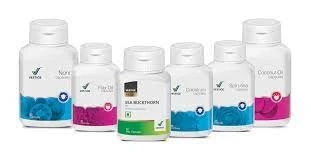Nutritionists all around the globe will agree on the fact that protein is one of the most important nutrients for the human body. A lack of protein can trigger a host of problems and affect your health. So, how much protein do you need?
Each individual has a unique daily protein requirement. There are various factors, including your age, activity level, and muscle mass that can influence your daily protein intake requirements.
However, if you carry a large amount of muscle mass, you may need to consume more protein than your Recommended Dietary Allowance (RDA). For people who live a sedentary lifestyle, the RDA for protein is 0.8 g protein per kg body weight (BW) per day. Dietary intake of 1.0, 1.3, and 1.6 g protein per kg BW per day is recommended for people with minimal, moderate, and intense physical activity.
At the same time, it's important not to overdo it on protein. Eating too much protein can lead to weight gain and increase your risk of certain diseases, such as kidney stones.
The best way to make sure you're getting enough protein is to eat a variety of protein-rich foods, including beans, legumes, nuts, seeds, eggs, fish, poultry, and lean meats. You can also get your fix of protein from supplements, such as whey or casein powder.
Protein is an essential nutrient for the human body. It's important for growth and development, and it plays a role in almost every bodily function. From building muscle to repairing tissue, protein is vital for optimal health.
What Is Protein?
Protein is the primary building block of the body and it plays a pivotal role in maintaining and developing muscles, tendons, organs and skin. In addition, our body is also dependent on the protein to produce and maintain hormone production.
Protein can be further divided into various amino acids, including histidine, isoleucine, leucine, lysine, methionine, phenylalanine, threonine, tryptophan and valine.
The human body is capable of producing some types of amino acids, but it is largely dependent on the food we consume to get all the essential amino acids. Animal products such as eggs, fish and meat are a complete source of protein, which means they provide all essential amino acids. On the other hand, plant protein sources such as chickpeas and pulses are incomplete proteins. If you are on a plant-based diet, you can use Vestige Protein Powder to meet your daily protein intake goal.
Can Protein Assist In Weight Loss?
When it comes to shedding weight, protein plays an important role. To lose weight, you need to burn more calories than you consume. And protein can help you in losing weight by increasing your metabolic rate, in addition to reducing your appetite.
According to research, if you get 25-30% of your daily calories from protein-rich food, your metabolism will burn additional 80-100 calories per day.
x`Protein also keeps you feeling full for a longer period of time as compared to carbohydrates and fat. Protein reduces the level of the hunger hormone ghrelin in your body.
Can Protein Assist In Muscle Gain?
As with all the other body tissues, our muscles undergo a continuous phase of breaking down and rebuilding. If you want to have bigger muscles, you need to make sure that muscle protein synthesis (MPS) is greater than muscle protein breakdown (MPB). In order for MPS to occur, amino acids and peptides must be available. Of the 20 amino acids used by mammals to synthesize proteins, 9 are considered essential because they cannot be synthesized by the body and must be obtained through the diet.
Dietary protein is digested in the stomach and small intestine and then absorbed into the bloodstream as individual amino acids or short peptides. Once in the blood, these amino acids or peptides can be taken up by cells and used for protein synthesis or other purposes. So, dietary protein is essential for muscle growth.
Conclusion
Protein is an essential nutrient and it has a wide range of benefits, from aiding in weight loss to helping with muscle gain. If you're looking to improve your health, make sure to include plenty of protein-rich foods in your diet. You can also get your fix of protein from supplements, such as whey or casein powder.
0


